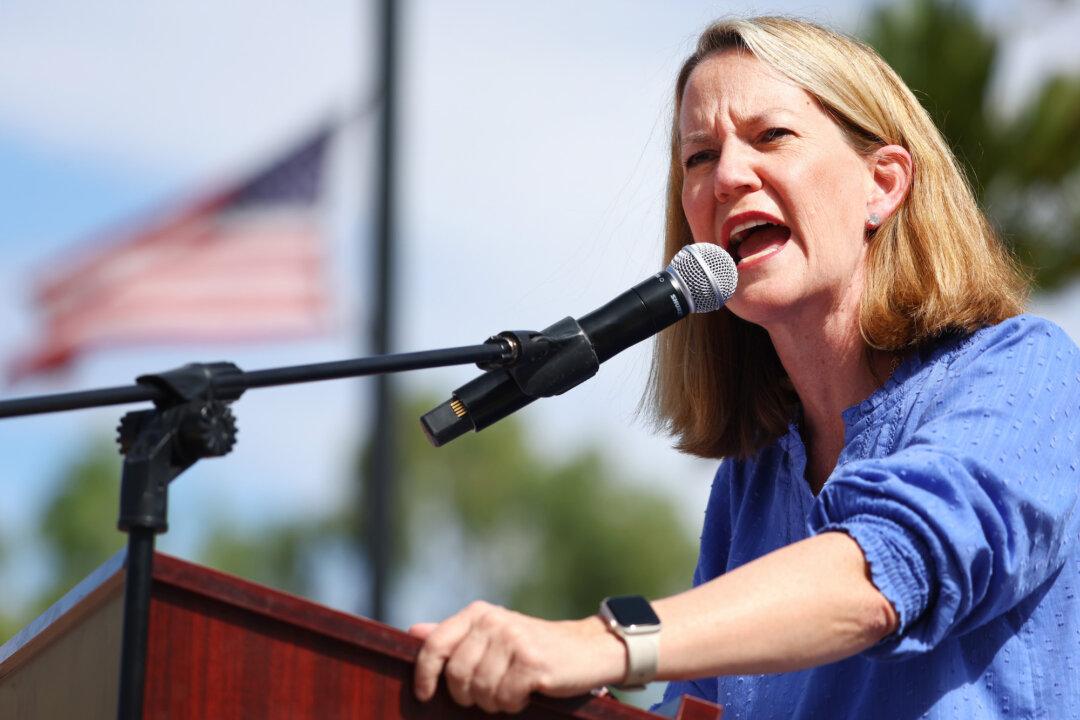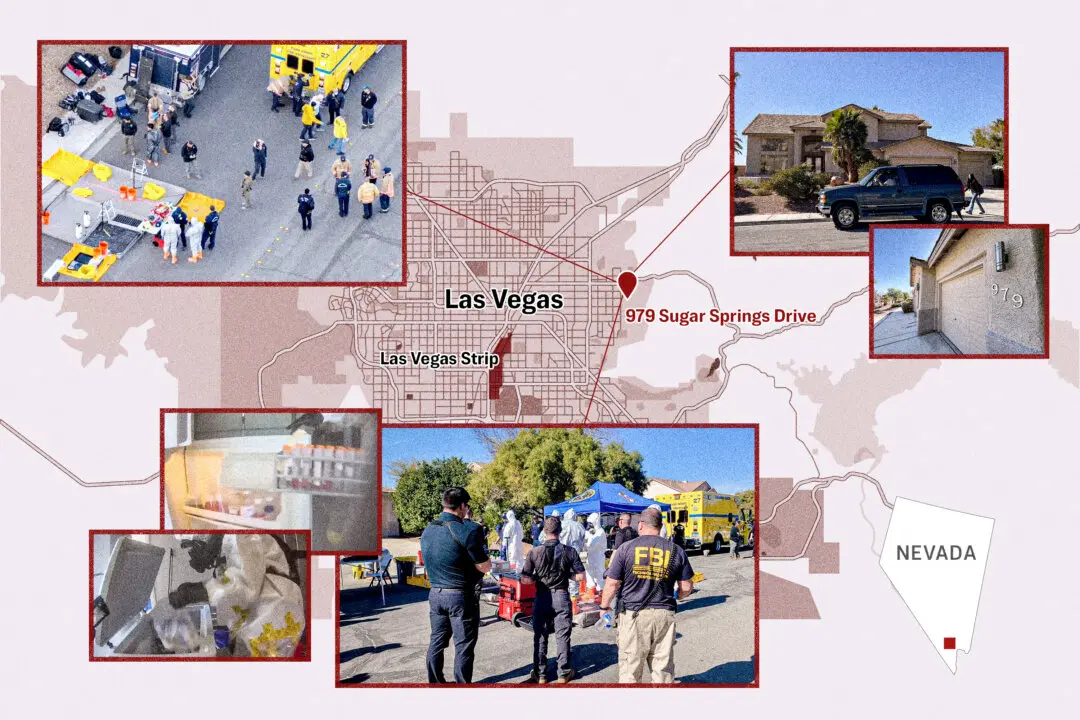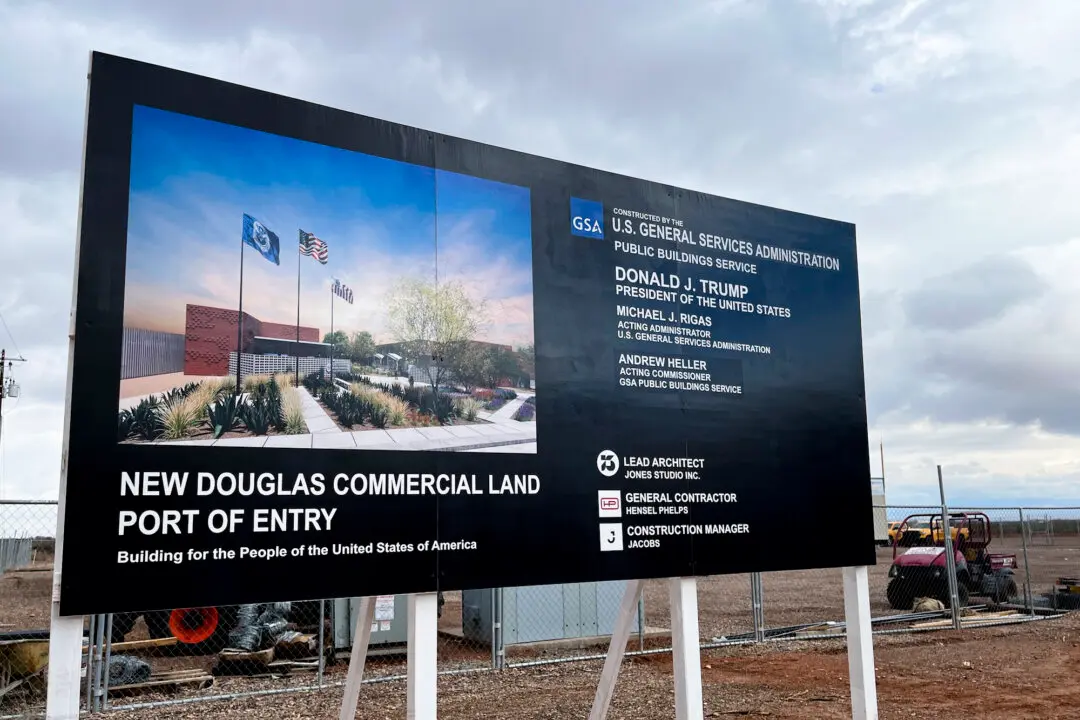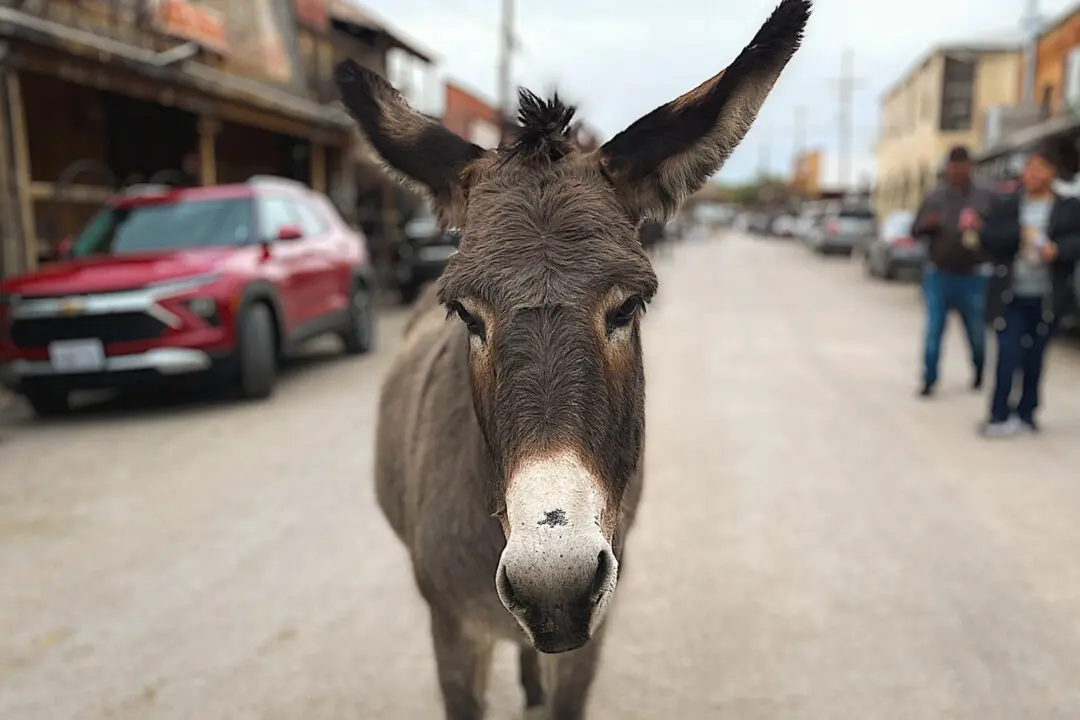MESA, Ariz.—The first of a two-day-trial began Wednesday in Maricopa County in an election lawsuit filed by Republican gubernatorial candidate Kari Lake against Democratic Gov.-elect Katie Hobbs in her capacity as the current Arizona secretary of state, in an attempt to challenge the Nov. 8 election and schedule a new vote.
The suit also names Maricopa County Recorder Stephen Richer, the Maricopa County Board of Supervisors, and others as defendants.





